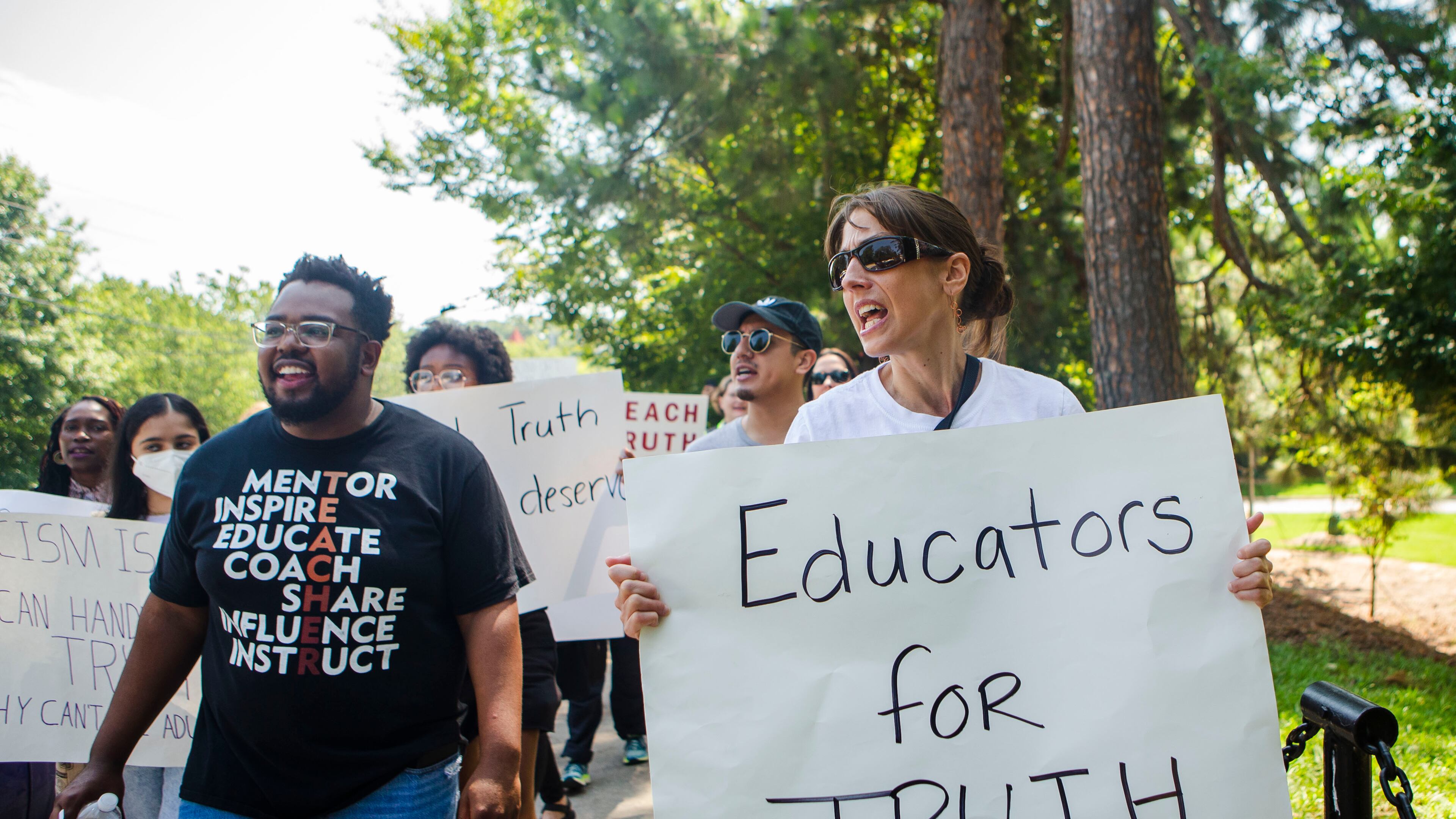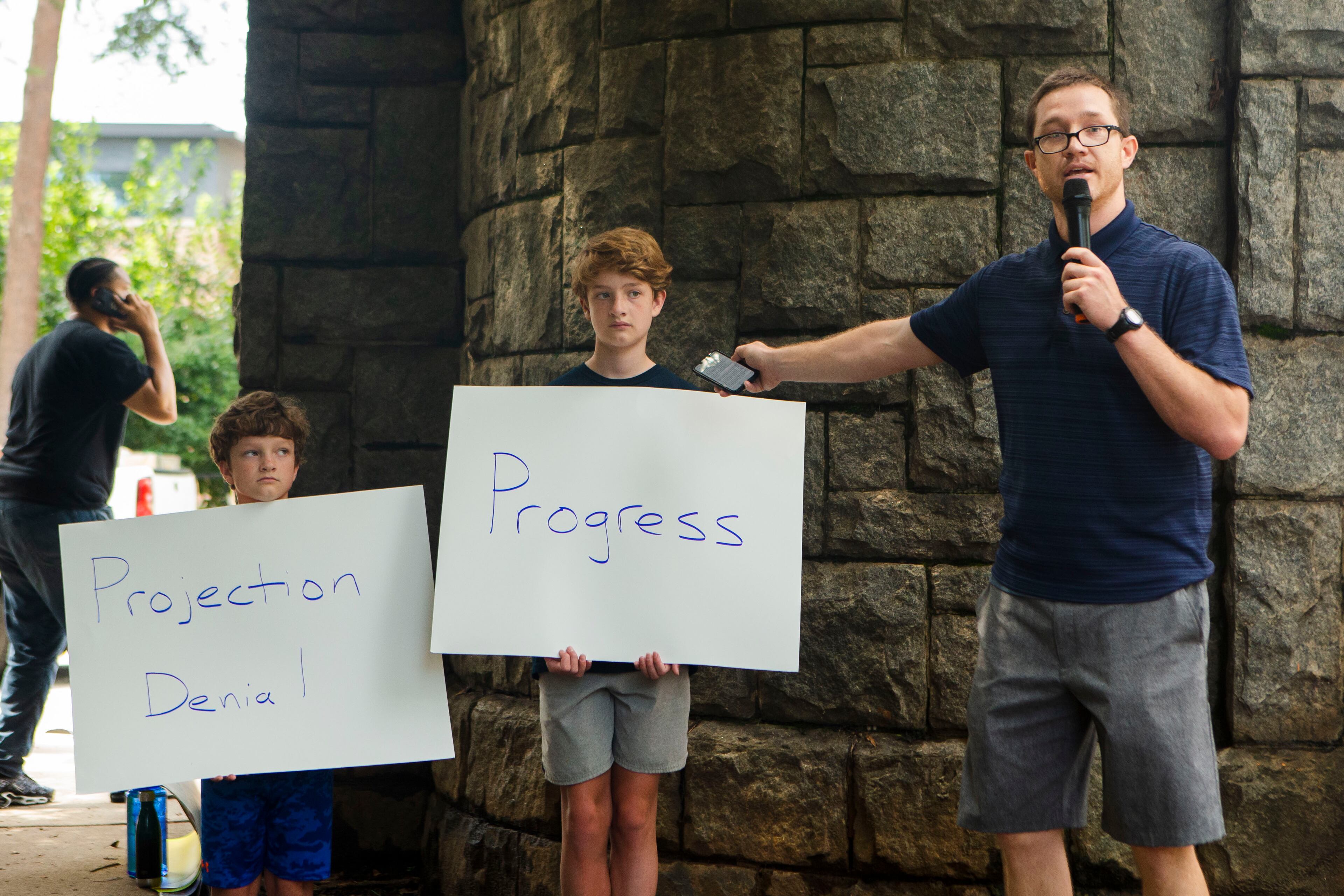Teachers wary as schools brace for new laws about race, obscenity

On a sweltering late July afternoon in Piedmont Park, a small group of teachers gathered under the trees with protest signs, complaining that truth was about to be censored in Georgia’s classrooms.
The rally just ahead of this fall semester was a defiant critique of new state laws that attempt to control what students see and hear in school. One of them, House Bill 1084, says teachers cannot “advocate for” nine concepts involving America’s racial history that lawmakers define as divisive.
“House Bill 1084 has said I can’t teach in nine ways because it’s too divisive, but for whom?” asked Charlie Copp, an educator at Drew Charter School in Atlanta.

That bill was among several that Republican lawmakers pushed into law starting this school year. It’s another stressor for teachers already feeling fatigued by the politicization of masks and vaccination. The growing risk of school shootings isn’t helping. Surveys show a substantial number may soon leave the profession. Some teachers say they’re going to be more careful discussing race and history with students.
The new laws in Georgia address national concerns about how race and other cultural flashpoints, such as sexuality in books, have been handled by schools. A chunk of the electorate believes that too many teachers “indoctrinate” their students. The Georgia GOP introduced the bills after Virginia Gov. Glenn Youngkin showed how Republicans could win on such issues, taking the office from a Democrat last year.
Under Georgia’s new “divisive concepts” law, parents, teachers and others at a school can file a complaint with the school principal, triggering a review process that could make its way to the state school board.
Rep. Will Wade, R-Dawsonville, explained his legislation this way during a legislative hearing in March: “This will protect every single child of every single race from the fringe divisive ends of the political parties of today.”
Some educators say the language in the law is vague and exposes teachers to invisible tripwires.
“No one knows where the line is, and I’m very concerned that we are going to allow that line to be drawn differently in different districts,” said Lisa Morgan, president of the Georgia Association of Educators, a teacher advocacy group.
The Georgia Historical Society held a “teaching challenging histories” seminar this summer after teachers asked for help. About 20 attended.
Jennifer Tesler, a high school literature teacher in northeast Georgia, was among them. She predicted that ambiguity in the law could cause wary teachers to censor classroom conversations about race.
“It probably will close down many discussions because teachers need their jobs,” she said.
School board meetings in the Atlanta suburbs have become a battleground over race and sexuality. In spring 2021, critical race theory became a rallying cry for angry residents. Next came calls to ban books that depicted sex.

In a sign of rising tension, parents in Forsyth County sued the school board in federal court last week claiming their free speech rights were violated. One was banned from future school board meetings after reading aloud a sex scene from a school library book during public comment.
Gwinnett County social studies teacher Paige McGaughey said the tension has been coiling for years. McGaughey, who is white, said she caught flak from white parents when she hung a Black Lives Matter poster in her middle school classroom after the murder of George Floyd.
McGaughey thinks the central office has her back more now than it did then because of its increasing focus on diversity and equity. She added, however, that teachers in counties that lean more conservative are more fearful: “I have friends that teach in Forsyth County and, yeah, it’s a very different atmosphere, and Cobb too.”
Tesler said she wants to continue training her students to think critically. She thinks the new laws erode the legitimacy of the teaching profession, but she said she can work with them.
“If nothing else,” Tesler said, “I will definitely be careful, which is not a bad thing.”



